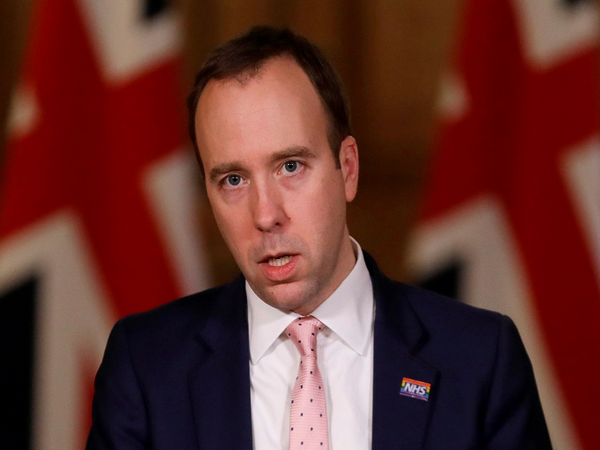British health minister defends decision to space COVID vaccine doses
Britain's move to delay the second doses of COVID-19 vaccines will help save lives as more people will be able to get some initial protection, health minister Matt Hancock said on Thursday, defending a policy shift questioned by some scientists.

- Country:
- United Kingdom
Britain's move to delay the second doses of COVID-19 vaccines will help save lives as more people will be able to get some initial protection, health minister Matt Hancock said on Thursday, defending a policy shift questioned by some scientists. The abrupt change of tack on Dec. 30 meant people who had been due to receive their second vaccine doses had their appointments cancelled in favour of scheduling more initial shots for others. Some scientists expressed doubts about the decision to alter proven dosing regimes.
Hancock defended the move, saying partial protection for more people would do more good than full protection for a select few. "The justification is really clear and straightforward, which is that it saves more lives, and ultimately, that is the public health justification," Hancock told lawmakers.
"The data show that there is a significant protection from both the Oxford and the Pfizer jabs after the first dose." In total, 1.1 million doses have been administered in England. Across the whole of the United Kingdom, 1.3 million doses have been deployed.
But only 19,981 second doses of the COVID-19 vaccine developed by Pfizer and BioNTech were given to people in England between Dec. 29 - when the first people to be vaccinated received their boosters - and Jan. 3. The day after second vaccinations began, health officials said they would prioritise giving as many people as possible a first shot of a COVID-19 vaccine to offer some protection over the rollout of booster shots.
That means second shots will now be given up to 12 weeks after people receive their first shots. While AstraZeneca's shot was tested with different intervals between doses, Pfizer has said there is no data to demonstrate the efficacy of its first dose after 21 days.
Prime Minister Boris Johnson hopes that by giving at least some protection to more than 13 million people in priority groups over the next six weeks, it will be possible to consider easing strict lockdown measures from mid-February.
(This story has not been edited by Devdiscourse staff and is auto-generated from a syndicated feed.)
- READ MORE ON:
- Oxford
- Pfizer
- England
- Hancock
- AstraZeneca
- Boris Johnson
- Britain
- Matt Hancock
- United Kingdom










